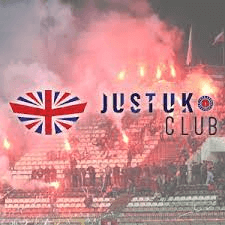Liverpool FC, its management, the players and supporters have just gone past a frenzied week of activities as the club sacked their manager and appointed a world class name in the form of Jurgen Klopp. In terms of making a statement, that was as big as the club has had in the last few years.
As I look back at the last week, it still brings a smile to my face, but it also brings further thoughts about the club. The motive of Liverpool FC should always be about ‘how can it become better ?’ In modern football, standing still is equivalent to going backwards. So what does Liverpool need to do to keep moving forward? In this piece, I am going to touch upon few of those pillars which I consider important for the club to keep progressing.
The Transfer Committee
There has been quite a bit of discussion on the transfer committee amongst the media and the Liverpool fan base, and the new manager has been very emphatic in squashing the issue and basically rendering it as a non entity. It is a common fact now that such collegiate decision-making groups exist across most of the continental clubs, if not all. It is another fact that it is not discussed in public circles often, because they are often out of limelight rather than ensuring ‘committee’ is declared as the Word of The Year. This is typically how a support function in any organisation must work; as an enabler. Any supporting function helps the core activity to be done better by saving effort, or by providing additional technical/business inputs.
To quote the new manager:
It’s a crazy discussion. It was not a problem for 10 seconds. I’m not an idiot. It’s enough that I have the first and the last word – in the middle we can discuss. We want to discuss good players on the highest level. I’m not a genius. I need other people to get the perfect information. When we have this we will decide to sign or sell a player.
It is the middle bit that we have to do better, much better if we want to be considered in the top echelons amongst the footballing clubs once again. There was a constant clamor within the fan base for a man like Monchi to be appointed. But let us also understand that Monchi is just the figurehead of a large back-room team that operate tirelessly throughout the season.
Quoting an extract from this interesting article:
“We go looking for unknown players in places where we know the richer teams won’t go because they don’t think they will find anyone talented enough for them,” Monchi said. “We know we can’t compete with Madrid, Barcelona, Chelsea, City, Juventus, Milan … But we know that we can find these good players. We know our market and we try to take advantage of it.”
The piece also talk about preparing the recruitment process in August of a particular year, almost year ahead of when the transfer might actually come to fruition.
“It’s important to see how each player will react when his team is winning, when it’s losing, when it’s playing at home, away, in a decisive game. We want to avoid being surprised later on,” Monchi said. “There is really no secret. We watch a lot of football, we travel a lot, we work hard.”
And therein lies the key. We work hard. Sounds absolutely simple, but it is proven how tough it can be in football, with very few clubs actually able to work out the transfer model to a certain extent.
Management Structure
If Liverpool have dreams of sitting at the top table of football clubs, then it is imperative that they benchmark themselves against the best in the business, which in this case happens to be Bayern Munich. Bayern Munich are a model club for most clubs around the world when it comes to football administration. The Bayern Munich hierarchy is filled with shining stars of the game from the past era, from Rummenigge, Beckenbauer, Uli Hoeness etc. They know what it means to be in such a position of power and responsibility, but more importantly look at the position as an honour, never as their right. The board members never hesitate to step in to set right issues which they feel is not up to the standard of Bayern Munich, even if it means disagreeing with their own manager publicly, as in the case of Jurgen Klinsmann
In the words of Klinsmann from an interview given to Sports Illustrated:
“It’s tricky when opinions clash; how do you now find a common ground?” he asks. “I didn’t find that. I had a different opinion on how I wanted to develop a team and buy players. On the other hand, it’s very positive because you’re talking to soccer people. When you argue about a player, a system, a style, you’re arguing with people who know what they’re talking about—which is sometimes fun. Let’s have that deepened [conversation], let’s go at each other. I didn’t fit into this way, so it was good that we parted ways. But in a certain way it is unique.”
Rummenigge had this to say about Klinsmann as part of a FAQ session with Sports Illustrated:
It is very different to be a coach of a national team and a coach at a club like Bayern. The expectations in a club like Bayern are very high. He was fired in 2009 being in second place, which under normal circumstances is not a drama. But (laughs) for Bayern it is a kind of drama, unfortunately.
I’m sorry about that for him, because he was always very serious doing his job. He was a very modern coach, and I’d say thanks to him we got some things like the modernization of our training center. That was an important step Jurgen did. At the end, maybe we went different ways because there was something in the relationship that was not working very well between him and the media on one side and between him and a certain part of the supporters.
No beating about the bush there. As close to perform-or-perish as it can get. That is what it takes to be at the top; and more importantly stay at the top; proper footballing men running the club.
Football Education & Operations
When we talk about football education; it is an umbrella of multiple activities like infrastructure, talent management & development, staffing, and a receptive environment across all age groups.
Again when we talk about footballing education, the club in prime focus is Bayern Munich. There is this fascinating piece on Bayern Munich Way on the website These Football Times
One of the key quotes from the piece when Bayern Munich and Germany were at the inception of a national level youth program was from Werner Kern, Director of Youth Football at Bayern Munich:
“In order to establish the best football education it must have the best of everything: the best coaches, the best team environment, the best age-oriented challenges, the best training conditions and equipment.”
Bayern Munich, like other clubs in the Bundesliga have a clearly defined policy when it comes to operating academies. Bayern Munich regularly invest upwards of £4m annually into their academy. The goal is always to find fresh talent from areas surrounding Munich before their search is extended onto other areas.
Current manager of the Bayern Munich Junior Team, Wolfgang Dremmler – another former Bayern star – asks the pertinent questions and details the youth development process:
“Does the boy put his heart and soul into his football? How good is his movement, how are his skills in terms of coordination? It’s quite easy to recognize things like that. You see it during the games, exactly how a boy conducts himself and the energy he puts in.
We don’t specifically test any technical skills – no one has to go dribbling through cones. We just let the kids play, with or without a goalkeeper, without a dead-ball line – just like it is in the streets. There is nothing to win and there are no trophies to hand out. Fun, emotion and desire are the only things that matter.”
The academy development is about competing regularly against the best in the best facilities on offer. An approach which is honed in so meticulously that every player is a just a cog in the system; in the sense that they are replaceable in the role they perform and the skill-set they possess. Ultimately the players are coached to the Bayern Munich system, and not the other way around. Their club motto Mia san Mia could not be more apt, with the motto translating to ‘We are who we are’ .
But it is not only about the focus on Academy. The constant principle at Bayern Munich is about ‘getting better at whatever they do’ with respect to their team and staff.
This is best illustrated in the below two scenarios
Case 1 : Bayern Munich had just lost the Champions League final to Chelsea, at home. For most clubs in football, that would be a great achievement, but no so for Bayern Munich. Second was not good enough (They had finished 2nd in all three major tournaments Bundesliga, Champions League, DFB Pokal).
“After that Chelsea defeat we brutally analysed our weak spots”, explained Hoeness
Until a point of time, the maximum fee forked out by Bayern Munich was for Franck Ribery when they paid more than £17m for his services. But once Hoeness and team were convinced that Javi Martinez was the solution to their problems after consultation with the manager Jupp Heynckes, they did not hesitate to pay the release clause of £32.9m.
Do whatever it takes to win.
Bayern Munich went on to win the treble the following season in 2012/13, all the competitions where they finished second the previous season.
Case 2: How do you try and improve a treble winning team?
This was a pertinent question in mind and Bayern answered it by announcing the appointment of Pep Guardiola as the successor of Jupp Heynckes. Bayern Munich sensed an opportunity and they seized it with both hands:
“We informed Jupp early on that we were in contact (with Pep Guardiola),” Hoeness said. “Of course he would have liked to have continued for another year, but in the end he decided this way. We are grateful that he didn’t make a scene.
Winning was alone not enough. Bayern demanded perfection. To be the best, you need to do things which make you the best, every single day.
Stadium Redevelopment as a source of Revenue?
A KPMG study (as of 2013) on Stadium development estimated that 90% or more European stadiums with capacities greater than 20000 are older than 30 years and that they require major re-development to be in sync with the demands of the modern football fan.
Liverpool have commenced the stadium development effort under the current ownership after multiple false starts and the improved main stand should be a sight to behold. Since FSG have been very clear that their preferred model is of re-development rather than a fresh start, there are lots of constraints with the existing fixed asset and hence the owners need to maximise whatever and wherever they can.
The below figure explains the modern reality of hospitality boxes and premium ticketing . It is quite apparent that creating hospitality boxes of sufficient numbers are far more tougher in existing older stadiums than in newly built stadiums. This literally provides no leeway for FSG with respect to additional seats being added at Anfield.

A more probable revenue generating model for Liverpool and FSG might be naming rights, partially or across the whole stadium. FSG in the past have expressed their preference towards having a naming right deal for the main stand currently being redeveloped. The naming rights deal won by Emirates and Etihad for the stadiums of Arsenal and Manchester City have ensured that England have the second highest average annual value per seat, a 60% positive difference with Germany which saw the naming rights phenomenon kick off in early 2000’s.
Selling commercial rights to individual stands provides the clubs to adopt different commercial strategies with individual partners rather than be bound to a single partner. This offers clubs a greater degree of flexibility to re-negotiate/negotiate with new partners as per their need.
The maximisation of revenue is very critical if Liverpool want to compete regularly in the Champions League. Dan Kennett recently tweeted out a fact that out of the last 56 Champions League places up for grabs in England, 47 of them have been occupied by one of the clubs having the top 4 wage bills. There is no doubt that Liverpool are up against it. But there is nothing which is impossible in football.Commercialization of a modern stadium is a dynamic controllable factor which can provide long term stable revenue in the years to come.
It is now up to Liverpool FC to act up on some of the above mentioned supporting pillars if the intention is to compete with the top clubs and stay at the top, consistently.
The first big change has been made, and makes me hopeful for the future.

















Great article Srikanth, thanks so much.
Hi Bill,
Thanks for reading and leaving your feedback. Very much appreciated.
Your article definitely uplifts every genuine Kopites spirits,happy all times all around….I can smell it